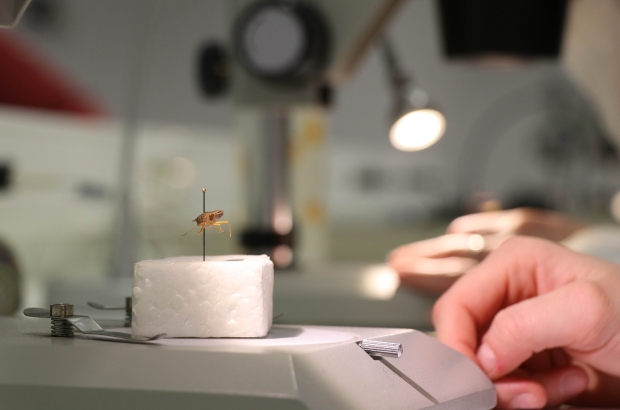- Daily & Weekly newsletters
- Buy & download The Bulletin
- Comment on our articles
Increase in mosquitos and insects this summer due to weather pattern
Warm summer temperatures are inciting squadrons of wasps, flies and mosquitoes into homes and gardens this year, reports RTBF.
The number of unwelcome visitors has risen this season due to alternating heavy rain and high temperatures: the perfect conditions for such pests.
With weather patterns influencing their breeding cycle, the upsurge is no surprise, says Gembloux Agro-Bio Tech entomology professor Frédéric Francis.
"The fact of having had a lot of rain, and now of having significant periods of heat has an impact on the populations of insects, which develop faster under optimal conditions. If we continue with this same weather association, we can indeed expect an abundance of insects in general."
Along with flies and mosquitoes, wasps are Belgium’s most unpopular insects and they’ve arrived earlier than usual this year.
"Obviously, the fact of having high temperatures means that there is additional activity and therefore a necessity for these wasps to feed. That's why you really see them near people and homes," adds Francis.
If you discover a wasp nest in your home, you’re advised to call on specialists. Meanwhile, flies and mosquitoes have the capacity to breed several times per year, depending on the climate. Once a mosquito egg is laid, it can survive for several months. Once in contact with water, it hatches.
Wet weather to blame for rise in mosquitoes
Successive bouts of rain have created stagnant stretches of water, which is the ideal nesting ground for the reproduction of mosquitoes and larvae. "If we exceed 25°C, this will accelerate their cycle and therefore the larvae will develop in a much shorter time. This’s why we currently have a greater emergence of adults," notes Francis.
While some insect species are taking advantage of the effects of global warming to reproduce more easily, other local species are tending to disappear. Belgium is also beginning to attract other varieties from across its borders. "Global warming is favourable to exotic species or to others that travel from the south. So this balance of our biodiversity is changing a bit."
Photo: © Gembloux Agro-Bio Tech Facebook page

















